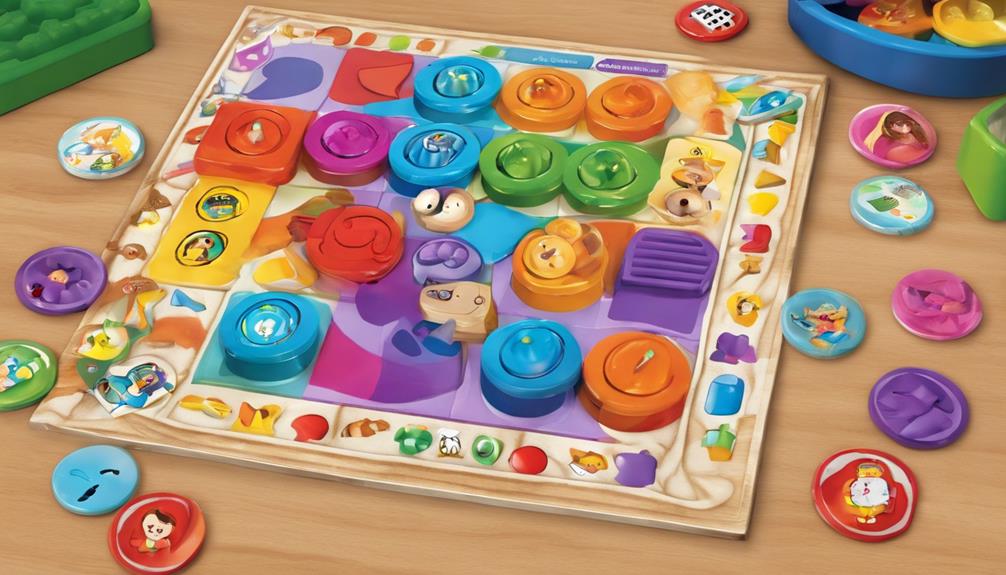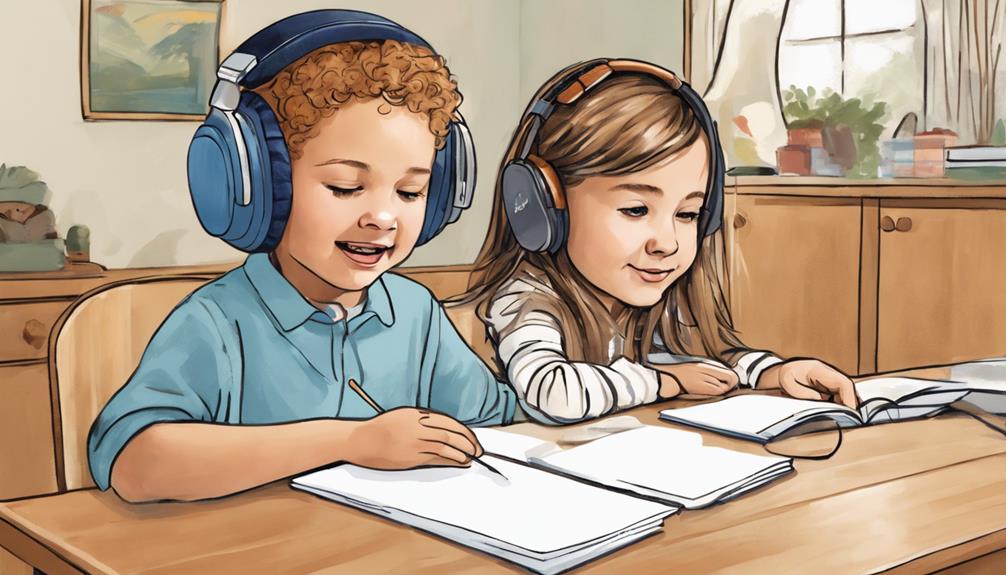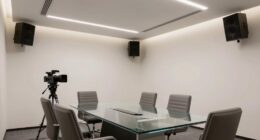Picture entering a room enveloped in sounds that swirl around you, each containing valuable information waiting to be grasped. With thoughtfully selected speech therapy exercises, we unleash the ability to improve auditory memory in ways never experienced before.
These activities not only stimulate the mind but also pave the way for improved memory retention and cognitive functions. By exploring the realms of auditory memory enhancement, we uncover a world where memories become sharper, attention spans deepen, and communication flourishes.
Join us on this journey as we unravel the mysteries of auditory memory and its transformative power.
Key Takeaways
- Speech therapy activities improve attention, listening, and memory recall.
- Multisensory techniques enhance auditory memory through visual, auditory, and tactile stimuli.
- Repetition and interactive exercises in therapy sessions boost auditory memory retention.
- Structured speech therapy interventions lead to significant enhancements in auditory memory skills.
Importance of Auditory Memory Skills
Understanding the significance of auditory memory skills is fundamental for grasping their impact on language development, learning, and communication. Auditory memory plays a vital role in our daily lives, enabling us to follow instructions, understand conversations, and recall information effectively. Strong auditory memory skills are crucial for academic success, as they aid in tasks such as reading comprehension, spelling, and vocabulary acquisition. Additionally, individuals with well-developed auditory memory skills are better equipped to engage in social interactions, as they can remember details of conversations and respond appropriately.
Furthermore, enhancing auditory memory can lead to improvements in overall cognitive functioning. Research suggests that individuals with stronger auditory memory skills demonstrate better problem-solving abilities and critical thinking skills. In the context of speech therapy activities, focusing on strengthening auditory memory is essential for supporting individuals in various aspects of their lives, from academic performance to social relationships. By honing auditory memory skills through targeted exercises and strategies, individuals can experience enhanced communication, learning, and overall quality of life.
Understanding Auditory Processing Disorders

How do auditory processing disorders impact communication and learning in individuals?
Auditory processing disorders can significantly affect an individual's ability to interpret and make sense of auditory information, leading to challenges in various aspects of communication and learning. Here are three key ways in which auditory processing disorders can impact individuals:
- Memory: Individuals with auditory processing disorders may struggle with auditory memory, making it difficult for them to recall and retain information presented orally.
- Auditory Discrimination: Difficulty in discriminating between similar sounds can hinder individuals with auditory processing disorders from accurately distinguishing between words or sounds.
- Sequencing Abilities: Challenges in processing sounds in the correct order can impact an individual's ability to follow verbal instructions or comprehend information presented sequentially.
Understanding these impacts is crucial for developing effective interventions, such as speech therapy activities, to support individuals with auditory processing disorders in improving their auditory memory and processing skills.
Benefits of Speech Therapy for Auditory Memory
Regularly engaging in speech therapy activities enhances auditory memory by strengthening attention, listening skills, and memory recall abilities. Research indicates that speech therapy can significantly improve auditory memory in individuals facing challenges in this area. By focusing on auditory processing, sequencing, and comprehension skills, speech therapy helps individuals develop effective strategies to enhance auditory memory in their daily lives. Consistent participation in speech therapy sessions can lead to observable enhancements in auditory memory function over time.
| Benefits of Speech Therapy for Auditory Memory | |
|---|---|
| 1. Enhances attention skills | 2. Improves listening abilities |
| 3. Strengthens memory recall capabilities |
Speech therapy not only targets specific areas related to auditory memory but also provides a structured approach to practice and refine these skills. It equips individuals with the tools necessary to navigate various auditory challenges effectively, leading to improved auditory memory performance and overall quality of life.
Incorporating Multisensory Techniques in Therapy

Incorporating multisensory techniques in therapy enhances learning and memory retention by engaging multiple senses. When addressing memory tasks, the use of various sensory modalities can significantly benefit individuals with auditory memory difficulties.
Here are three ways multisensory techniques can be integrated into therapy sessions:
- Visual Stimuli: Incorporating visual aids such as charts, diagrams, or flashcards can help reinforce auditory information and improve memory recall.
- Auditory Stimuli: Utilizing auditory cues like music, recorded instructions, or sound effects can enhance memory encoding and retrieval during therapy activities.
- Tactile Stimuli: Introducing tactile elements such as textured objects, sensory bins, or interactive materials can create a hands-on learning experience that boosts memory consolidation.
Interactive Listening and Recall Exercises
Engaging in interactive listening and recall exercises during speech therapy sessions can significantly enhance auditory memory skills in both children and adults. These exercises involve activities that require active listening, processing, and recalling information, contributing to the development of reading comprehension skills.
By practicing to remember and understand spoken instructions, stories, and details, individuals enhance their memory retention, comprehension, and communication abilities. Interactive listening and recall exercises create a stimulating environment that fosters auditory memory development.
Through these activities, individuals not only improve their ability to remember information but also enhance their capacity to comprehend and interpret complex auditory input. Speech therapy activities that focus on interactive exercises provide a platform for individuals to engage with auditory stimuli actively, leading to improved memory recall and better reading comprehension.
Utilizing Visual Aids in Memory Enhancement

Utilizing visual aids such as pictures, charts, and diagrams can significantly enhance auditory memory by providing additional sensory input. Visual cues offer a supportive framework for individuals engaged in memory-enhancing activities, facilitating better encoding and retention of information.
Here are three ways visual aids contribute to memory enhancement:
- Enhanced Comprehension: Visual aids complement verbal instructions, aiding in the understanding and internalization of spoken information.
- Improved Focus and Engagement: Incorporating visual elements can increase attention levels and overall engagement during memory-related tasks.
- Support for Visual Learners: Visual aids are particularly beneficial for individuals who learn best through visual stimuli, enhancing their ability to grasp and remember auditory information.
Implementing Repetition and Reinforcement Strategies

Building upon the effectiveness of visual aids, enhancing auditory memory further involves implementing repetition and reinforcement strategies in speech therapy activities. Repetition in speech therapy helps consolidate memory by reinforcing information through multiple exposures. Utilizing reinforcement strategies like visual aids or cues can significantly boost auditory memory retention. By incorporating interactive games and exercises into therapy sessions, repetition becomes more engaging and thus more effective in enhancing auditory memory. Varying the presentation of information during repetition can stimulate different memory pathways, leading to a more robust memory recall. Consistent practice with these repetition and reinforcement techniques is key to improving overall auditory memory skills over time.
| Repetition Strategies | Reinforcement Strategies | Interactive Activities |
|---|---|---|
| Repeat information multiple times | Use of visual aids or cues | Incorporate games and exercises |
| Vary presentation of information | Provide consistent prompts | Engage in interactive tasks |
| Practice consistently | Offer rewards for correct recall | Encourage participation and engagement |
| Use different contexts for repetition | Utilize technology for reinforcement | Make learning fun and interactive |
| Incorporate multisensory approaches | Provide positive feedback | Create a supportive learning environment |
Creating Engaging Memory Games and Activities

When it comes to enhancing auditory memory through engaging games and activities, we've a plethora of options at our disposal.
Memory games like shopping and story recall can help improve object-related auditory memory skills, while list-based activities such as chaining and recalling sequences enhance memory for lists.
Communication games like expanding sentences and broken telephone not only boost listening skills but also strengthen memory capabilities.
Memory Game Ideas
Engaging memory games and activities can significantly enhance auditory memory retention through interactive and stimulating exercises. Memory game ideas can vary to cater to different aspects of memory retention and cognitive skills development:
- Shopping games: Collecting objects based on specific instructions enhances memory retention and comprehension.
- Chaining games: Recalling and adding items to a list encourages creativity in item descriptions, boosting memory enhancement.
- Communication and listening games: Activities like expanding sentences and broken telephone improve memory retention through storytelling and active listening, fostering better memory skills over time.
Interactive Learning Activities
To enhance auditory memory through engaging activities, incorporating interactive learning methods like memory games can significantly boost memory retention and cognitive skills development.
Interactive learning activities such as shopping games and recalling parts of a story can help individuals recall information more effectively. Chaining games and remembering spoken sequences aid in categorizing and recalling data, thus improving auditory memory.
Communication and listening games like expanding sentences and broken telephone encourage active participation, enhancing memory retention. Additionally, memory recall activities such as remembering specific items and participating in orienteering tasks improve spatial memory and navigation abilities.
Real-life application games like taking messages and following instructions through drawings further enhance memory recall in practical scenarios. By engaging in these interactive learning activities, individuals can sharpen their memory skills and better retain information.
Monitoring Progress and Adjusting Interventions

Monitoring progress in auditory memory enhancement involves regular assessments and feedback sessions to track memory improvement effectively. As speech therapists, we utilize various strategies to monitor progress and adjust interventions accordingly:
- Utilizing standardized assessment tools: Implementing standardized assessments allows us to objectively measure auditory memory abilities and identify areas for improvement accurately.
- Tracking performance trends: By monitoring performance trends over time, we can observe how auditory memory skills are developing and make informed decisions about adjusting interventions.
- Incorporating patient feedback: Actively seeking feedback from patients regarding the effectiveness of interventions enables us to tailor our approach to better suit individual needs and preferences.
These strategies ensure that our interventions are dynamic and responsive to the unique requirements of each patient, ultimately maximizing the effectiveness of auditory memory enhancement in speech therapy.
Frequently Asked Questions
What Are the Activities to Develop Auditory Memory?
We can develop auditory memory through various activities. Object-related games involve recalling items based on instructions. List-based games like chaining help in adding items to a list. Communication games like expanding sentences enhance memory through interaction.
Memory recall activities such as remembering specific items enhance real-life memory skills. Real-life application games like taking messages promote communication skills. These activities can improve auditory memory effectively.
How Do You Improve Auditory Working Memory?
Improving auditory working memory involves engaging in memory games, story recall, and sentence building. We practice listening to and recalling sequences of numbers, colors, and objects.
Communication games like expanding sentences and broken telephone can boost auditory memory. Real-life scenarios, such as taking messages and following instructions, enhance auditory memory practically.
We adjust exercises to the individual's level, using memory techniques and suitable text for reading aloud.
How Do You Target Memory in Speech Therapy?
We target memory in speech therapy through engaging exercises and tailored interventions. Our focus lies in enhancing retention, recall, and comprehension abilities.
By utilizing memory games, storytelling tasks, and sequencing exercises, we aim to strengthen auditory memory effectively. These techniques not only improve communication but also boost learning and cognitive skills.
Our approach ensures individuals experience enhanced memory capabilities, leading to better overall outcomes in speech therapy.
How Do You Assess Auditory Memory in Speech Therapy?
We assess auditory memory in speech therapy through tasks like recalling lists, following directions, and remembering story details. Common tools like CASL and CELF help evaluate memory. Tasks vary in format, from sentences to stories.
Observing a child's ability to recall in conversations guides our understanding. This assessment informs tailored interventions to enhance memory, comprehension, and communication skills.
How Can Speech Therapy Activities Enhance Auditory Memory?
Auditory training speech therapy offers comprehensive activities to enhance auditory memory. Engaging in speech therapy activities can improve listening skills and the ability to recall information accurately. These exercises help individuals recognize and remember sounds, words, and sentences, leading to improved communication and cognitive function.
Conclusion
In conclusion, speech therapy activities offer a unique opportunity to enhance auditory memory skills through engaging and interactive exercises. By incorporating various techniques and games, individuals can improve their memory retention and recall abilities in a fun and effective way.
It's important to continue monitoring progress and adjusting interventions to ensure continued growth and improvement. Remember, practice makes perfect, and with dedication and effort, progress can be achieved.










